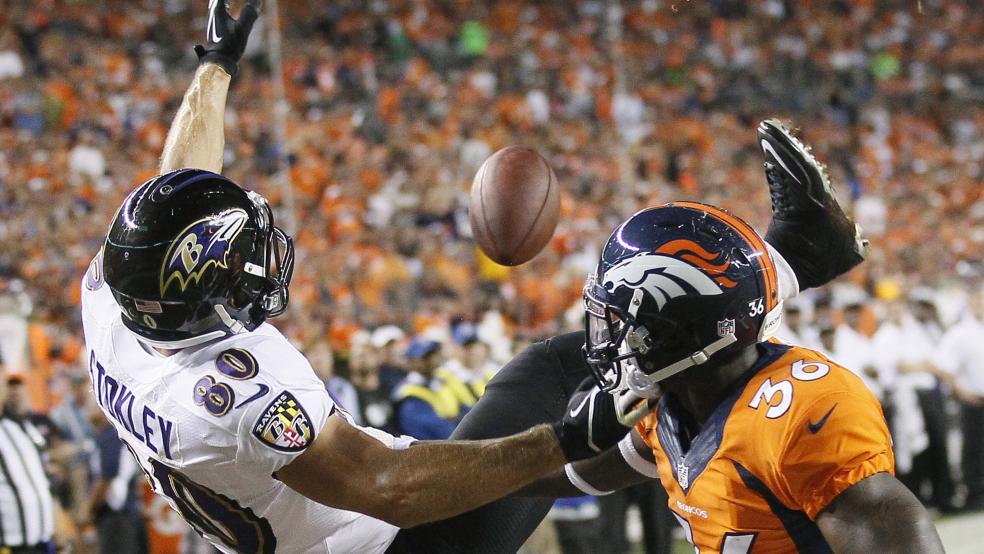There's an old saying among writers that there are only three human narratives: man versus man, man versus nature, and man versus himself. Add a fourth narrative for the age of big data: man versus the machines that are meddling in our daily lives.
In Las Vegas, where card counters from MIT and "rain men" have used peculiar powers of the human brain to cash out with millions, the man versus machine archetypal narrative is evolving as a plot line in the world of sports gambling. As another college football and NFL season gets underway, can the Vegas bookie who is like a stock character out of a Martin Scorsese movie still be the genius behind the three-and-a-half-point spread, or will he ultimately cede his place to a combination of Wall Street and Silicon Valley algorithms?
The somewhat surprising answer, according to sports analytics experts and statisticians turned sports betting junkies, is that man will prevail, or at least give computer cores a run for their money. Even as algorithms moving the sportsbook line become more complex, human ingenuity and gut instinct can't be removed from the three-and-a-half-point equation.
So many variables can be plugged into algorithms now: player availability monitored minute by minute via social media posts, optical tracking of players on the field, and in-game predictive models projecting final scores based on situational scoring and defenses. It would be foolish to think casinos and sportsbook operations are not using every byte at their disposal to keep the edge in the house.
Cantor Gaming, the Vegas sportsbook affiliate of brokerage firm Cantor Fitzgerald, which brought Wall Street whiz to Vegas, declined to comment, but Vegas experts say Cantor has pushed the envelope the furthest in applying the algorithmic lessons of trading to sports betting.
Read more: Nascar: No bottom line bang from big data
Joe Peta, a 15-year Wall Street veteran who recently took a two-year detour into devising a baseball gambling system while recovering from a serious injury—an experience chronicled in his book, "Trading Bases"—said that he is convinced there will be many more intersections of analytics, investing and sports betting. In baseball, the matchup between pitcher and batter reigns, and that dynamic makes it the most statistically friendly major sport on which people bet.
There's a simple reason Las Vegas can't afford not to make the most of computing power: Sophisticated players such as Peta are looking for an advantage, and even short of true big data, algorithms based on core statistics can give it to them. That was the experience of "Dr. Bob," Bob Stoll, who began applying his statistics background from the University of California, Berkeley to sports gambling in the mid-1980s, before the onslaught of big data number crunching.
"I had a huge edge doing what I consider to be now pretty simply analysis," Stoll said via email.
Otis Jennings, a statistics professor at Duke University's business school and an expert in sports analytics, said, "People out there are looking for an edge. ... The casinos need to do the same, and that's where sports analysts will get hired in Vegas.




